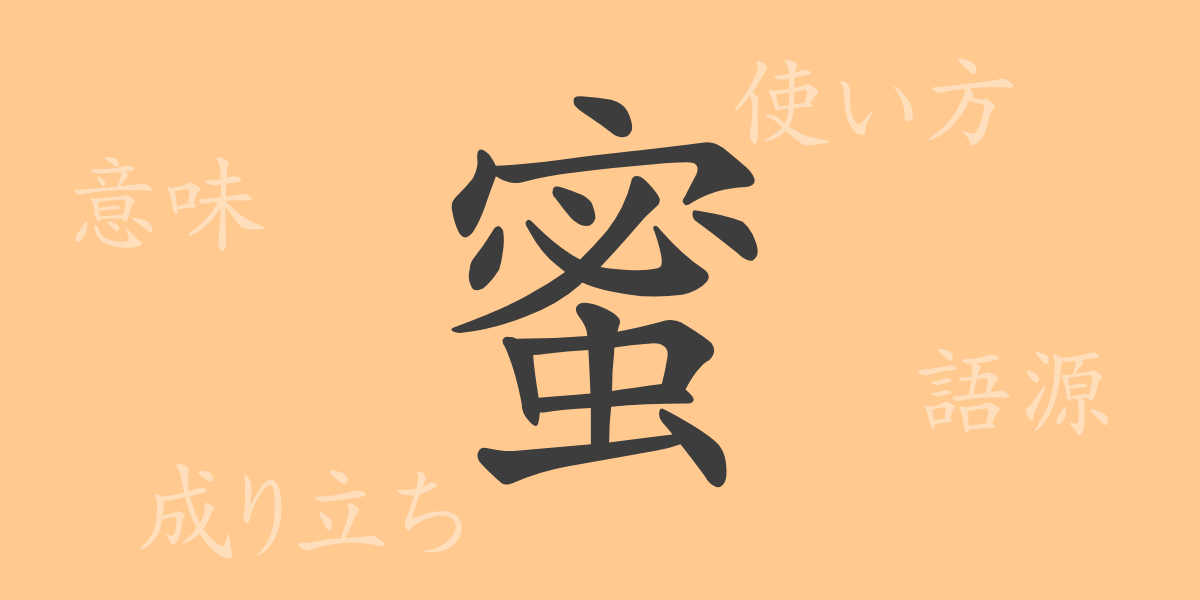The characters that appear in Japanese literature serve as more than just a means of conveying meaning; they are keys to unlocking the depths of culture and history. One of the commonly used kanji (characters) is “蜜” (mitsu). This small symbol evokes sweet and rich imagery, yet its origins and applications are vast and varied. In this article, we will focus on this fascinating kanji “蜜” (mitsu), unraveling its etymology, meanings, usages, and even idiomatic expressions and proverbs in the Japanese language.
The Origin of 蜜 (mitsu)
The journey to uncover the origins of the kanji “蜜” (mitsu) takes us back to ancient times. Originally written as “密” (mitsu), it derives from the Sanskrit word “मधु (madhu),” meaning sweet liquid. It traveled through China to Japan, where it was read as “mitsu” and primarily used to refer to sweet honey. Over time, its usage expanded to include metaphorical meanings as well.
Meanings and Usages of 蜜 (mitsu)
The kanji “蜜” (mitsu) is primarily known as a word for “honey,” but it also conveys meanings such as “sweetness,” “richness,” “secret,” and “intimate.” For example, “蜜月” (mitsugetsu) refers to the sweet early period of a marriage, and “蜜柑” (mikan) denotes a type of sweet fruit. Additionally, the expression “蜜の味” (mitsu no aji) signifies something very sweet and pleasurable.
Readings, Stroke Count, and Radical of 蜜 (mitsu)
Understanding the readings and components of the kanji “蜜” (mitsu) can deepen our comprehension of it.
- Readings: On’yomi (音読み) is “ミツ” (mitsu), no Kun’yomi (訓読み)
- Stroke count: 14 strokes
- Radical: 虫部 (mushi hen) – insect radical
Idiomatic Expressions and Proverbs Using 蜜 (mitsu)
The Japanese language is rich with idiomatic expressions and proverbs that include “蜜” (mitsu). For instance, “蜜月” (mitsugetsu) describes the sweet early period of a marriage, “蜜柑” (mikan) refers to a sweet orange fruit, “蜜を吸う” (mitsu o suu) means to gain benefits from something good, and “蜜の味” (mitsu no aji) signifies a very sweet and delightful experience. These expressions add a rich layer of expressiveness to everyday conversations.
Conclusion on 蜜 (mitsu)
The kanji “蜜” (mitsu) offers a glimpse into the depth of the Japanese language through its history and diverse meanings. From ancient times to the present, this character has continued to add sweetness and richness to our language. Like honey, sometimes wrapped in a veil of secrecy, this kanji will continue to blend into our lives as a part of Japanese expression.

























